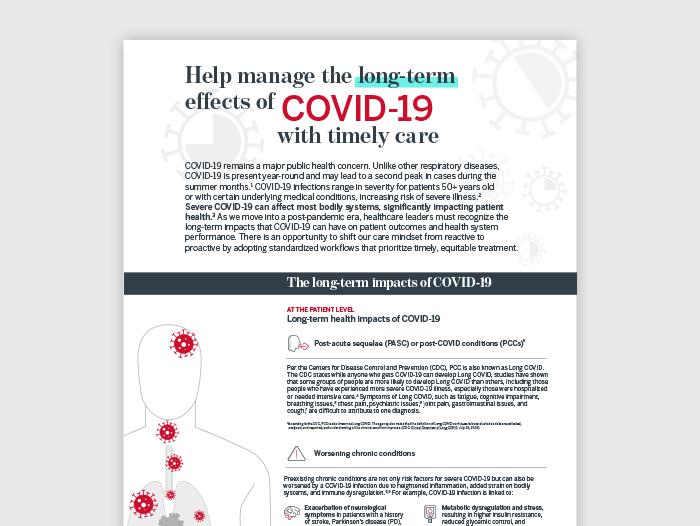Auto logout in seconds.
Continue LogoutAccording to a new report from Kaufman Hall, physicians are more productive than ever but pay has not increased to match — a trend that is expected to only continue growing.
Physician productivity is up but support is low
According to the report, physician productivity, which is measured in work relative value units per full-time employee, reached 6,449 in the second quarter of 2025, representing a 12% year-over-year increase.
"Increases in productivity metrics, coupled with higher compensation and expenses, reflect a reality that physicians and advanced practice providers are working more than ever before," said Matthew Bates, managing director and physician enterprise service line leader at Kaufman Hall.
However, despite physicians working more, medical support staffing levels have declined. Between Q2 2023 and Q2 2025, the number of support staff relative to physician productivity decreased by 13%.
Esteban Lopez, a partner at consultancy West Monroe, said more physicians may burn out if they do not have enough support staff to help with administrative work. "A lack of support staff not only affects physicians' morale, but also their productivity," Lopez said. "Those providers are going to have to do more with less."
"At some point this growth in productivity starts to be impeded if the doctor has to go out and check in their own patients and take their vitals, they're not gonna be able to see as many patients," Bates said.
"Providers are working harder each year to maintain their incomes. When provider incomes don't keep pace with inflation, supply can further erode."
According to Matt Wolf, director of Elliott Davis Advisory, providers will likely implement new technology to further increase their productivity levels. Some examples include AI to streamline patient messaging and ambient listening technology to better document patient visits and code them appropriately.
Physician reimbursement is stagnant while expenses grow
Although there was a roughly 5% increase in net revenue per full-time provider between Q2 2023 and Q2 2025, net revenue per unit of work, which typically represents how much revenue a physician generated for the volume of work they put in, decreased by 7%.
The median payment for the amount and type of treatment physicians provided also declined by 7% during the same time while the median expense per physician and advanced practice provider increased by 7%.
As more care shifts from hospitals to outpatient facilities, physicians are likely to see further decreases in reimbursement since insurers usually pay less for outpatient care than inpatient care. According to Rick Kes, a senior industry analyst at RSM, insurers, particularly those with Medicare Advantage and other managed care plans, will likely push for more care to be provided in outpatient settings — which will require providers to treat more patients to achieve a healthy margin.
Advisory Board's PHYSICIAN resources
- Survey insights: What to know about the clinician workforce today
- Measuring physician burnout
- Becoming the physician employer of choice
- Provider compensation model not working? Here's how to fix it.
- Implications of the new era of physician employment
- Gaining an edge on the competition: The key to winning and retaining physician talent.
The One Big Beautiful Bill Act, which was signed into law last month, will also impact physicians' reimbursements, as well as patients' insurance coverage. The law includes over $1 trillion in cuts to federal healthcare programs, including Medicaid and Medicare. Around 10 million people are expected to lose their health insurance because of the law, with another 4 million potentially losing coverage if subsidies for Affordable Care Act Plans expire at the end of the year.
"Reimbursement has not kept pace with either provider compensation or inflationary expense increases," said Fred Horton, president of American Medical Group Association Consulting. "Providers are working harder each year to maintain their incomes. When provider incomes don't keep pace with inflation, supply can further erode."
Recently, CMS proposed a rule to update the Medicare Physician Fee Schedule, which included a base increase of 2.5% for physicians next year. However, other policies in the proposed rule mean that reimbursement will vary significantly based on a physician's specialty, site of practice, and the payment models they participate in.
"There is a little relief on the reimbursement side coming in 2026 to help combat those headwinds," said Clare Moylan, a principal at Gibbins.
(Kacik, Modern Healthcare, 8/13; Reed, Axios, 8/12; Pifer, Healthcare Dive, 8/12; Condon, Becker's Hospital Review, 8/12)
Don't miss out on the latest Advisory Board insights
Create your free account to access 1 resource, including the latest research and webinars.
Want access without creating an account?
You have 1 free members-only resource remaining this month.
1 free members-only resources remaining
1 free members-only resources remaining
You've reached your limit of free insights
Become a member to access all of Advisory Board's resources, events, and experts
Never miss out on the latest innovative health care content tailored to you.
Benefits include:
You've reached your limit of free insights
Become a member to access all of Advisory Board's resources, events, and experts
Never miss out on the latest innovative health care content tailored to you.
Benefits include:
This content is available through your Curated Research partnership with Advisory Board. Click on ‘view this resource’ to read the full piece
Email ask@advisory.com to learn more
Click on ‘Become a Member’ to learn about the benefits of a Full-Access partnership with Advisory Board
Never miss out on the latest innovative health care content tailored to you.
Benefits Include:
This is for members only. Learn more.
Click on ‘Become a Member’ to learn about the benefits of a Full-Access partnership with Advisory Board
Never miss out on the latest innovative health care content tailored to you.



